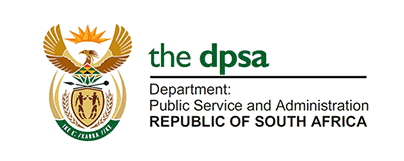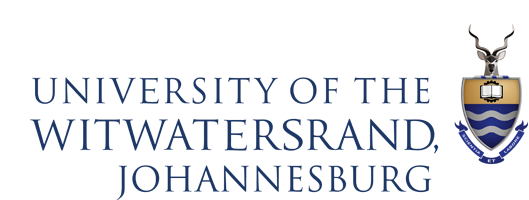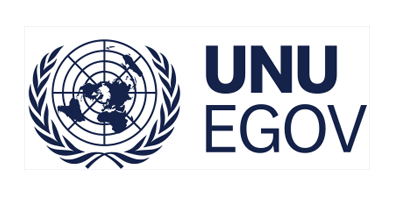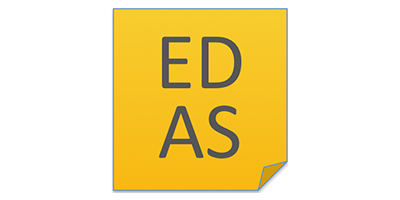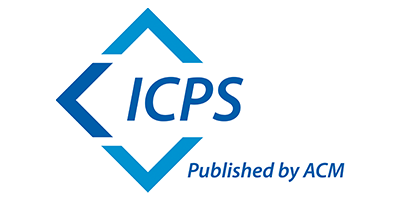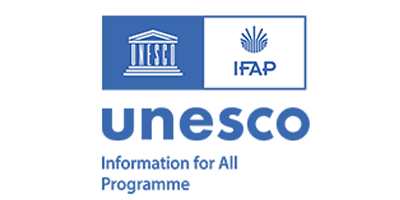Summary
About
The 14th International Conference on Theory and Practice of Electronic Governance – ICEGOV 2021 was held in Athens, Greece, from 6 to 8 October 2021. For the first time in the conference’s history, a hybrid attendance model was in place due to the COVID-19 pandemic, which still hindered participants from several countries from attending due to travel bans or lack of vaccination. After a fully online edition in 2020, ICEGOV tried to combine the best of the virtual and physical together in what can be seen as a step forward towards pre-pandemic reality.
Under the theme Smart Digital Governance for Global Sustainability, ICEGOV 2021 focused on exploring how the synergies among the communities of technology, policy, and social cohesion can be a positive factor for sustainable development in our quest of tackling the great problems that still shake our societies and advancing towards a higher quality of living while preserving our planet.
Call for Papers
Two Call for Papers were issued: the regular Call for Papers (15 January – 1 June) and a Special Call for Short Papers (25 April – 1 June), the latter more focused on COVID-related submissions. In response to both calls, the conference received a total of 168 papers written by 382 authors from 51 countries. Of these, 85 were research papers (50%), 42 were ongoing research papers (25%), 30 were short papers (18%), and the remaining 11 (7%) were posters. Subsequently, a double-blind peer-review process was carried out by the 162 Programme Committee Members from 42 different countries. This process resulted in 401 reviews.
Published as part of the conference proceedings are 88 papers, of which 47 are research papers (53%), 18 are ongoing research papers (21%), 15 are short papers (17%), and the remaining 8 (9%) are posters. The accepted papers represent a contribution of 224 authors from 38 countries. Four of these papers were further selected by the Awards Committee and received the respective Best Paper award, as listed below. The acceptance rate for ICEGOV 2021 is 38.7%.
Best Paper Awards
The winning papers in each category are shown below. The choices were carried by the Awards Committee.
Best Research Paper: Unpacking digital accountability: ensuring efficient and answerable e-Governance service delivery (S. Sharma, A. Kar, M. Gupta)
Best Ongoing Research Paper: A machine learning approach for medical device classification (A. Ceross, J. Bergmann)
Best Short Paper: Improving Cape Verde’s digital governance strategy formulation process (W. Araujo, M. Cardoso, J. Cruz)
Best Poster Paper: Development of a method for assessing the accessibility of the urban environment for low-mobility groups of the population based on Google Maps reviews (B. Nizomutdinov, V. Kazak)
Statistics
Attendance
- Total participants: x
- Local participants: x
- International participants: x
- Total countries: x
- Developed countries: x
- Emerging countries: x
- Participants from developed countries: x
- Participants from emerging countries: x
- Gender balance (M/F): x
- Participants from academia: x
- Participants from government: x
- Participants from industry: x
- Participants from international organisations / NGOs x
- Participants from civil society / other: x
Papers and Authors
- Papers submitted: x
- Papers published: x
- Acceptance rate: x%*
- Authors: x
- Authors from developed countries: x
- Authors from emerging countries: x
*the acceptance rate includes only papers 5 or more pages lon; short papers, poster, workshops and invited talks are not considered
Programme Committee (reviewers)
- Total people: x
- Reviews done: x
- Total countries: x
- Developed countries: x
- Emerging countries: x
- PC Members from developed countries: x
- PC Members from emerging countries: x
UNU-EGOV Scholarships
- Scholarships awarded: x
- Gender balance (M/F): x/x
- Awarded to students: x
- Awarded to non-students: x
- Awarded to people from developed countries: x
- Awarded to people from emerging countries: x
Proceedings
Publications
- #
- Proceedings of the 14th International Conference on Theory and Practice of Electronic Governance (ICEGOV 2021); Euripidis LOUKIS, Marie Anne MACADAR, Morten MEYERHOFF NIELSEN
- Information
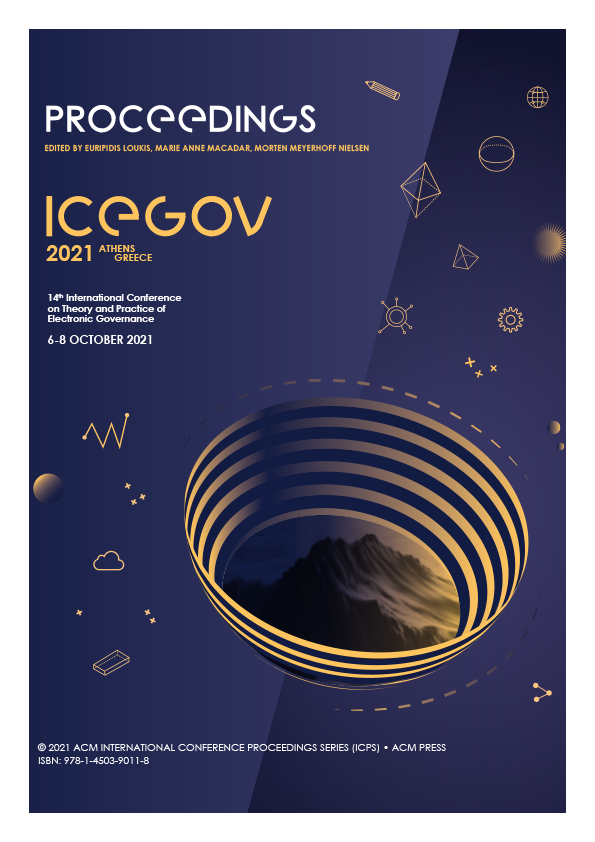
- Editors
- Euripidis LOUKIS, Marie Anne MACADAR, Morten MEYERHOFF NIELSEN
- Conference
- ICEGOV 2021
- URL
- ACM Digital Library
Institutions
Patron
- Ministry of Digital Governance, Hellenic Republic
Organisers
- University of the Aegean
- Harokopio University of Athens
- United Nations University Operating Unit on Policy-Driven Electronic Governance (UNU-EGOV)
Sponsors
- Pylones
Supporters
- Association for Computing Machinery
- Elsevier
- Greek Research and Technology Network (GRNET)
- CONVIN – Professional Conference Organizer
Comittees
Conference Committee
Dimosthenis ANAGNOSTOPOULOS, Hellenic Ministry of Digital Governance • Conference Chair
Anabela PEDROSO, Secretary of State, Ministry of Justice of Portugal • Conference Chair
Euripidis LOUKIS, University of the Aegean, Greece • Programme Committee Chair
Marie Anne MACADAR, Federal University of Rio de Janeiro, Brazil • Programme Committee Chair
Morten MEYERHOFF NIELSEN, United Nations University (UNU-EGOV), Portugal • Programme Committee Chair
Yannis CHARALABIDIS, University of the Aegean, Greece • Local Organisation Chair
Zoran JORDANOSKI, United Nations University (UNU-EGOV), Portugal • Roundtable Sessions Chair
Mariana LAMEIRAS, United Nations University (UNU-EGOV), Portugal • Workshops Chair
Mário PEIXOTO, United Nations University (UNU-EGOV), Portugal • Communications Chair
Elisabete SIMÕES, United Nations University (UNU-EGOV), Portugal • UNU Organisation Chair
ICEGOV Steering Committee (2021)
John BERTOT, University of Maryland, United States
João Álvaro CARVALHO, University of Minho, Portugal
Wojciech CELLARY, Poznań University of Economics and Business, Poland
Yannis CHARALABIDIS, University of the Aegean, Greece
Maria Alexandra CUNHA, Getúlio Vargas Foundation, Brazil
Elsa ESTEVEZ, Universidad Nacional del Sur, Argentina • Steering Committee Chair
Paul HECTOR, UNESCO Regional Bureau for Sciences in the Arab States, Egypt
Tomasz JANOWSKI, Technical University of Gdańsk, Poland
Marijn JANSSEN, Delft University of Technology, Netherlands
Theresa PARDO, University at Albany (SUNY), United States
Peter PARYCEK, Danube University Krems, Austria
Demetrios SARANTIS, United Nations University (UNU-EGOV), Portugal
Delfina SOARES, United Nations University (UNU-EGOV), Portugal
Luís SOARES BARBOSA, United Nations University (UNU-EGOV), Portugal
Organising Committee
Cristina BRAGA, United Nations University (UNU-EGOV), Portugal
José Luís FARIA, United Nations University (UNU-EGOV), Portugal
Vicky DENAXA, CONVIN, Greece
Zois LIAROMMATIS, CONVIN, Greece
Georgia MENTI, CONVIN, Greece
Filippos MILIONIS, CONVIN, Greece
Stefanos MYLONAS, CONVIN, Greece
Alkis POLYRAKIS, CONVIN, Greece
Harris TZANAVARIS, CONVIN, Greece
Apostolos DIMITRIOU, Harokopio University of Athens, Greece
Konstantinos GEROKOSTAS, Harokopio University of Athens, Greece
Stefani IOANNOU, Harokopio University of Athens, Greece
Anthony KAPAROUNAKIS, Harokopio University of Athens, Greece
Georgios KOUROUNIS, Harokopio University of Athens, Greece
Christos LABROPOULOS, Harokopio University of Athens, Greece
Christos LAMPROPOULOS, Harokopio University of Athens, Greece
Georgia PREPI, Harokopio University of Athens, Greece
Konstantinos STAVRIANOS, Harokopio University of Athens, Greece
Artemis STEFANIDOU, Harokopio University of Athens, Greece
Stefanos TOGIAS, Harokopio University of Athens, Greece
Mairi VASILEIOU, Harokopio University of Athens, Greece
Awards Committee
Soumaya BEN DHAOU, United Nations University (UNU-EGOV), Portugal • Chair
More MANDA, merSETA, South Africa
Sehl MELLOULI, Laval University, Canada
Ibrahim ROHMAN, Samudera Indonesia Research Initiatives, Indonesia
Programme Committee
Raul ABRIL, European Commission, Belgium
Ayman ALARABIAT, Al-Balqa Applied University, Jordan
Laura ALCAIDE MUÑOZ, University of Granada, Spain
Ali AL-LAWATI, Ministry of Transport, Communications, and Information Technology, Oman
Vanessa ALMEIDA, National Bank for Economic and Social Development, Brazil
Luis ÁLVAREZ-SABUCEDO, University of Vigo, Spain
Wagner ARAUJO, United Nations University (UNU-EGOV), Portugal
Hernan ASTUDILLO, Universidad Técnica Federico Santa María, Chile
Johanna AWOTWI, no affiliation, Ghana
Judy BACKHOUSE, United Nations University (UNU-EGOV), Portugal
Rehema BAGUMA, Makerere University, Uganda
Sundar BALAKRISHNA, Government of Andhra Pradesh, India
Alexandre BARBOSA, Brazilian Network Information Center (NIC.br), Brazil
Soumaya BEN DHAOU, United Nations University (UNU-EGOV), Portugal
Radomir BOLGOV, Saint Petersburg State University, Russia
Linda BOWER, no affiliation, United States
Mikhail BUNDIN, Lobachevsky State University of Nizhny Novgorod, Russia
Luís CAMARINHA-MATOS, NOVA University of Lisbon, Portugal
Joana CARVALHO, United Nations University (UNU-EGOV), Portugal
João Álvaro CARVALHO, University of Minho, Portugal
Alejandra CECHICH, Universidad Nacional del Comahue, Argentina
Carlos CHESÑEVAR, Universidad Nacional del Sur, Argentina
Sunil CHOENNI, Research and Documentation Centre, Dutch Ministry of Justice and Security, Netherlands
Andrei CHUGUNOV, ITMO University, Russia
Soon CHUN, City University of New York, United States
Taiane Ritta COELHO, Federal University of Paraná, Brazil
Flávio CORRÊA DA SILVA, University of São Paulo, Brazil
J. Ignacio CRIADO, Autonomous University of Madrid, Spain
Rama Khrusna DAS, National Informatics Centre, India
Rahul DE’, Indian Institute of Management Bangalore, India
Vasiliki DIAMANTOPOULOU, University of the Aegean, Greece
Gonçalo DIAS, University of Aveiro, Portugal
Eduardo DINIZ, Getúlio Vargas Foundation, Brazil
Pietro DOLCI, University of Santa Cruz do Sul, Brazil
Néstor DUCH BROWN, European Commission Joint Research Center, Spain
Débora DUTRA, State University of Rio Grande do Sul, Brazil
Elsa ESTEVEZ, Universidad Nacional del Sur, Argentina
Isabel FERREIRA, Polytechnic Institute of Cávado and Ave, Portugal
Olga FILATOVA, Saint Petersburg State University, Russia
Pablo FILLOTTRANI, Universidad Nacional del Sur, Argentina
Leif Skiftenes FLAK, University of Agder, Norway
Maria GINTOVA, Ryerson University, Canada
Yiwei GONG, Wuhan University, China
María Paula GONZÁLEZ, CONICET and Universidad Nacional del Sur, Argentina
Stevan GOSTOJIC, University of Novi Sad, Serbia
Dimitris GOUSCOS, National and Kapodistrian University of Athens, Greece
Rajan GUPTA, University of Nova Gorica, Slovenia
Smita GUPTA, Delhi Metropolitan Education, India
Manmohan GUPTA, Indian Institute of Technology Delhi, India
Moreen HEINE, University of Lübeck, Germany
Marcia HINO, Federal Technological University of Paraná, Brazil
Jun IIO, Chuo University, Japan
Tupokigwe ISAGAH, Mzumbe University, Tanzania
Tomasz JANOWSKI, Gdańsk University of Technology, Poland and Danube University Krems, Austria
Marijn JANSSEN, Delft University of Technology, Netherlands
Zoran JORDANOSKI, United Nations University (UNU-EGOV), Portugal
Izabela KAPSA, Kazimierz Wielki University, Poland
Arpan KAR, Indian Institute of Technology Delhi, India
Paul KARIUKI, University of KwaZulu-Natal, South Africa
Geci KARURI-SEBINA, University of Witwatersrand, South Africa
Maria KARYDA, University of the Aegean, Greece
Anjali KAUSHIK, Management Development Institute Gurgaon, India
Ilka KAWASHITA, University of Phoenix, United States
Fernando KLEIMAN, Delft University of Technology, Netherlands
Panagiotis KOKKINAKOS, National Technical University of Athens, Greece
Spyros KOKOLAKIS, University of the Aegean, Greece
Vinod KOTWAL, National Pharmaceutical Pricing Authority, India
Ioannis KOULIZAKIS, University of the Aegean, Greece
Milena KRUMOVA, Technical University of Sofia, Bulgaria
Hiroko KUDO, Chuo University, Japan
Mariana LAMEIRAS, United Nations University (UNU-EGOV), Portugal
Thomas LAMPOLTSHAMMER, Danube University Krems, Austria
Beatriz LANZA, Center for Technology in Government, University at Albany (SUNY), United States
Galbaatar LKHAGVASUREN, National University of Mongolia, Mongolia
Edimara LUCIANO, Pontifical Catholic University of Rio Grande do Sul, Brazil
Óscar LUENGO, University of Granada, Spain
Luis LUNA-REYES, University at Albany (SUNY), United States
Marie Anne MACADAR, Federal University of Rio de Janeiro, Brazil
Javiera F. M. MACAYA, Getúlio Vargas Foundation, Brazil
Nagini MADHURANTHAKAM, RSU, India
Aimilia MAGKANARAKI, 7th Healthcare Region of Crete, Hellenic Ministry of Health, Greece
Ana MAGUITMAN, Universidad Nacional del Sur, Argentina
Debendra MAHALIK, Jyoti Vihar, India
Mercy Erhi MAKPOR, United Nations University (UNU-EGOV), Portugal
João MARTINS, United Nations University (UNU-EGOV), Portugal
Aleksei MARTYNOV, Lobachevsky State University of Nizhny Novgorod, Russia
Dzmitry MARUSHKA, Belarus State Economic University, Belarus
Amit MAZUMDER, Ministry of Electronics and Information Technology, India
Keegan MCBRIDE, Hertie School Centre for Digital Governance, Germany
Rony MEDAGLIA, Copenhagen Business School, Denmark
Sehl MELLOULI, Laval University, Canada
Gilles MENTRE, Electis, France
Harekrishna MISRA, Institute of Rural Management Anand, India
Gianluca MISURACA, Universidad Politecnica de Madrid, Spain
Lilian MITROU, University of the Aegean, Greece
Francesco MUREDDU, Lisbon Council, Belgium
Magdalena MUSIAŁ-KARG, Adam Mickiewicz University, Poland
Bárbara NASCIMENTO, Rio de Janeiro State Prosecutor’s Office, Brazil
Niels NETTEN, Research and Documentation Centre, Dutch Ministry of Justice and Security, Netherlands
Franck NOUYRIGAT, Electis, France
Lizzy OFUSORI, University of KwaZulu-Natal, South Africa
Charles OPPENHEIM, Robert Gordon University, United Kingdom
Verónica ORELLANA, Escuela Politécnica Nacional, Ecuador
Alexander PAKHALOV, Lomonosov Moscow State University, Russia
Dimitris PANOPOULOS, Hellenic Ministry of Labour, Greece
Charalampos PAPADOPOULOS, Municipality of Kavala, Greece
Peggy PAPADOPOULOU, University of the Aegean, Greece
Ilias PAPPAS, University of Agder, Norway
Theresa PARDO, Center for Technology in Government, University at Albany (SUNY), United States
Anna PICCO-SCHWENDENER, Università della Svizzera italiana, Switzerland
Fernando PINTO, Federal University of Rio de Janeiro, Brazil
Vicente PITOGO, Caraga State University, Philippines
Dmitry PROKUDIN, Saint Petersburg State University, Russia
Erico PRZEYBILOVICZ, Pontifical Catholic University of Rio Grande do Sul, Brazil
Rui QUARESMA, University of Évora, Portugal
Eric RAMIREZ, Government of El Salvador, El Salvador
Christine Diane RAMOS, De La Salle University, Philippines
Luis Felipe RAMOS, United Nations University (UNU-EGOV), Portugal
Diana RANGEL, Centro para la Investigación Social, Venezuela
Manuel Pedro RODRÍGUEZ BOLÍVAR, University of Granada, Spain
Alexander RONZHYN, University of Koblenz-Landau, Germany
Abebe RORISSA, University of Tennessee, Knoxville, United States
Benjamin ROSETH, Inter-American Development Bank, United States
Athanasia ROUTZOUNI, University of the Aegean, Greece
Oriana RUIZ, Centro para la Investigación Social, Venezuela
Edgar Alejandro RUVALCABA-GOMEZ, Universidad de Guadalajara, Mexico
Mortaza S. BARGH, Rotterdam University of Applied Sciences and Research and Documentation Centre, Dutch Ministry of Justice and Security, Netherlands
Jenny SÁNCHEZ-TORRES, Universidad Nacional de Colombia, Colombia
Demetrios SARANTIS, United Nations University (UNU-EGOV), Portugal
Biancca Nardelli SCHENATZ, Federal University of Ouro Preto, Brazil
Ecem Buse SEVİNÇ ÇUBUK, Aydın Adnan Menderes University, Turkey
João Marco SILVA, United Nations University (UNU-EGOV), Portugal
Kerley SILVA, University of Porto, Portugal
Rodrigo SILVA, Brazilian Network Information Center (NIC.br), Brazil
Érica SIQUEIRA, Getúlio Vargas Foundation, Brazil
Wafa SNAINEH, Government Design Academy, Canada
Delfina SOARES, United Nations University (UNU-EGOV), Portugal
Luís SOARES BARBOSA, United Nations University (UNU-EGOV), Portugal
Ralf-Martin SOE, FinEst Centre for Smart Cities, Tallinn University of Technology, Estonia
Antonios STASIS, Hellenic Ministry of Digital Governance, Greece
Kaoru SUNADA, GLOCOM, International University of Japan, Japan
Efthimios TAMBOURIS, University of Macedonia, Greece
Su-Kit TANG, Macau Polytechnic Institute, China
Lőrinc THURNAY, Danube University Krems, Austria
Eliane TORRES, United Nations University (UNU-EGOV), Portugal
Dmitrii TRUTNEV, ITMO University, Russia
Luiz VARGAS, Federal University of Rio de Janeiro, Brazil
Costas VASSILAKIS, University of the Peloponnese, Greece
Jayan VASUDEVAN, Centre for Development of Advanced Computing, India
Gabriela VIALE PEREIRA, Danube University Krems, Austria
Lyudmila VIDIASOVA, ITMO University, Russia
Nidhi VIJ MALI, University of Mississippi, United States
Marco VINK, Research and Documentation Centre, Dutch Ministry of Justice and Security, Netherlands
Shefali VIRKAR, Danube University Krems, Austria
Felipe VOGAS, Federal University of Rio de Janeiro, Brazil
Ronny WEINKAUF, University of Applied Sciences Merseburg, Germany
Guilherme WIEDENHÖFT, Federal University of Rio Grande, Brazil
Maria WIMMER, University of Koblenz-Landau, Germany
Tung-Mou YANG, National Taiwan University, Chinese Taipei
Mika YASUOKA, Roskilde University, Denmark
Moinul ZABER, United Nations University (UNU-EGOV), Portugal
Dimitris ZEGINIS, University of Macedonia, Greece
Sessions
ICEGOV 2021, much like its 13 past editions, featured a rich 3-day programme of 6 Keynote Lectures, 4 Plenary Sessions, 16 Paper Sessions, and 4 Roundtable Sessions. On the pre-conference day (5 October), the Doctoral Colloquium and the 3 Workshops were held. All sessions were based on submitted or invited contributions by researchers, experts, policy-makers, and practitioners from around the world. All sessions are available for viewing on UNU-EGOV-s YouTube channel. due to the conference’s hybrid model, which required a streaming service for online participants.

